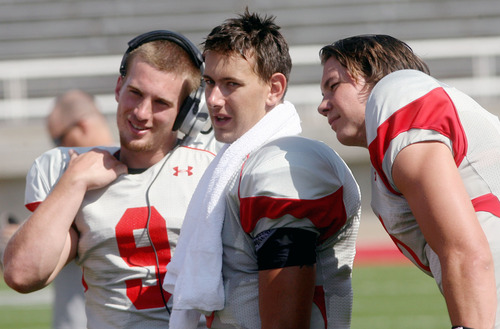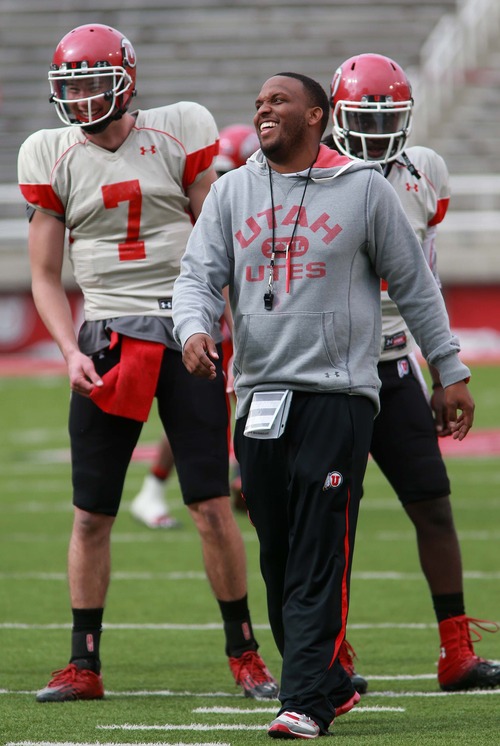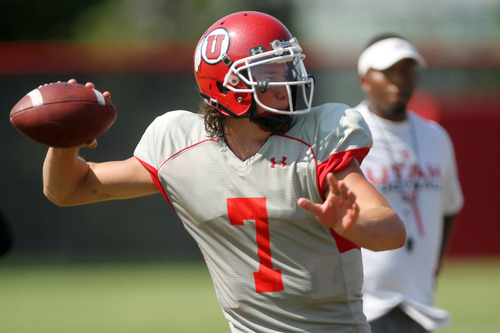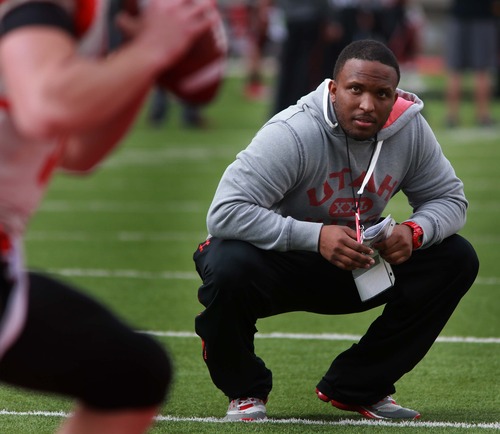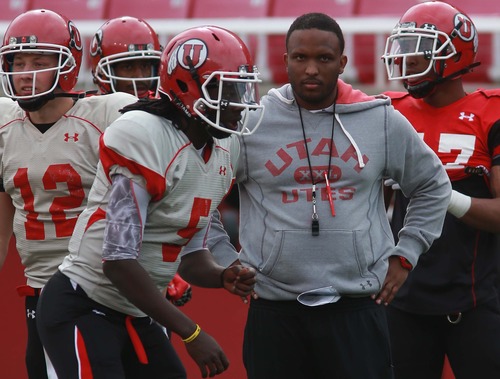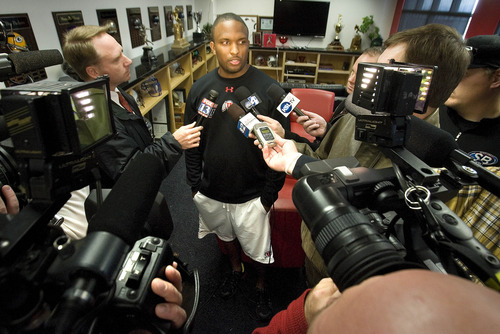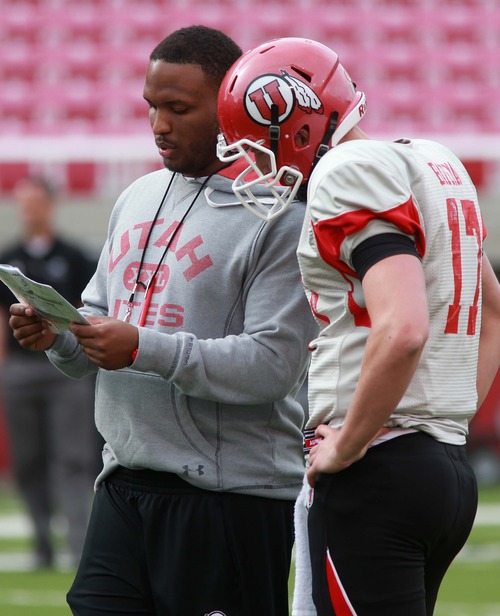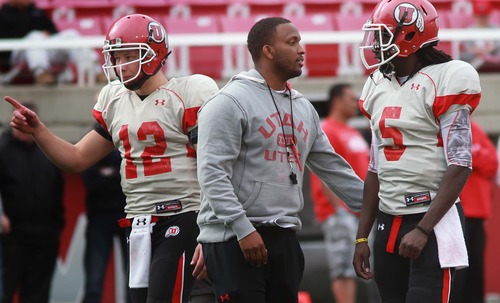This is an archived article that was published on sltrib.com in 2013, and information in the article may be outdated. It is provided only for personal research purposes and may not be reprinted.
Brian Johnson's celebrated status as the youngest offensive coordinator in college football lasted one year.
That's not because Johnson suddenly became older, although he certainly aged during that season. Johnson's tenure ended when Utah coach Kyle Whittingham's dissatisfaction with the offense led to Dennis Erickson's being named the co-coordinator in February.
The fallout? Johnson won't become the head coach of the Dallas Cowboys by age 30, as his career trajectory once suggested. Otherwise, this is a minor setback, with an intriguing twist: Johnson's future now becomes tied to Erickson's impact at Utah.
According to the script, Erickson will make the Ute offense more dynamic and move on after a couple of years. Johnson then could return to a full coordinator's role. But if Erickson fails to improve the Pac-12's second-worst offense, who knows what happens?
The reality for now is that Johnson can't complain. It's not just that he won't complain, standing on the Rice-Eccles Stadium field Tuesday after the fourth session of spring practice. He's simply not in a position to do so, based on the results.
Well, he could cite being unfairly judged by a season when Utah used three quarterbacks. Yet Johnson's having witnessed that sequence of events also explains why he can't lament his own circumstances.
Not after Jordan Wynn sustained a career-ending shoulder injury in September.
Not after Wynn's replacement, Jon Hays, was benched in October, effectively ending his career.
Asked what he learned last season, Johnson said, "The biggest thing is you've got to be ready to handle adversity and handle adjustments when things don't necessarily go your way."
Like having "co-" attached to your job title.
"By no means am I down on Brian Johnson," Whittingham said. The realignment, just prior to Johnson's 26th birthday (and Erickson's 66th), illustrated Whittingham's demanding nature. It also was an acknowledgment that Utah's 2012 staff was too provincial and too inexperienced at this level, contributing to a 5-7 overall record and a 3-6 conference mark.
Johnson knew "soon after the season ended," by Whittingham's account, that changes were coming. Whittingham shrewdly upgraded the offensive staff without firing anyone or derailing Johnson's career.
When defensive line coach Chad Kauha'ah'a moved to Wisconsin, Whittingham created an offensive vacancy by shifting Ilaisa Tuiaki to defense.
Whittingham conducted multiple interviews with various staff configurations in mind. He blindly contacted Erickson, a longtime college and NFL head coach who sat out the 2012 season after being fired at Arizona State. "I had no idea if he'd even be remotely interested," Whittingham said. "I just took a shot."
It may prove to be the boldest and best move of Whittingham's career. Erickson's mandate is to control as much of the offense as he wants to, giving Utah a fifth play-caller in five seasons, but he's apparently not overbearing. "There's no clash of egos whatsoever," Whittingham said.
And Johnson remains upbeat about his job. "My approach has been exactly the same," he said, focusing on developing Travis Wilson and the other quarterbacks.
Picturing him as the Sugar Bowl MVP, it's easy to forget everything Johnson overcame as a Ute quarterback, including a knee injury that forced him to redshirt in the middle of his career and recurring shoulder problems in his junior season.
Life is not always like 2008, in other words. The 2012 season certainly challenged Johnson, who keeps reliving some of Utah's close losses. "We had some opportunities where we just didn't get it done," he said. "It was a multitude of reasons; I can't go into them all. You go through rough patches in life as well. That's why I love the game so much. It teaches you lessons that you can incorporate into your life."
Erickson already has counseled Johnson not to dwell on mistakes as a play-caller. "The one thing that you can't do is second-guess [yourself]," Johnson said. "There's always going to be a play that you wish you had back. The key is just learning from your experiences and continuing to grow."
Room for improvement
Pac-12 teams' offensive yards in 2012 conference games:
Oregon 534.7
Arizona 494.2
USC 469.1
Arizona State 447.9
UCLA 426.9
Oregon State 425.1
Stanford 405.3
California 366.8
Washington State 363.8
Washington 359.0
Utah 323.2
Colorado 307.1


